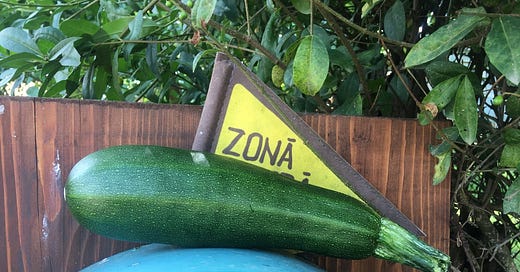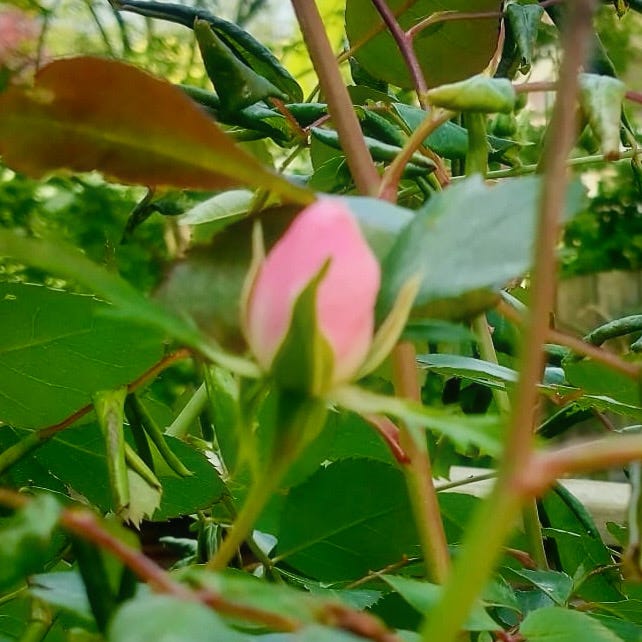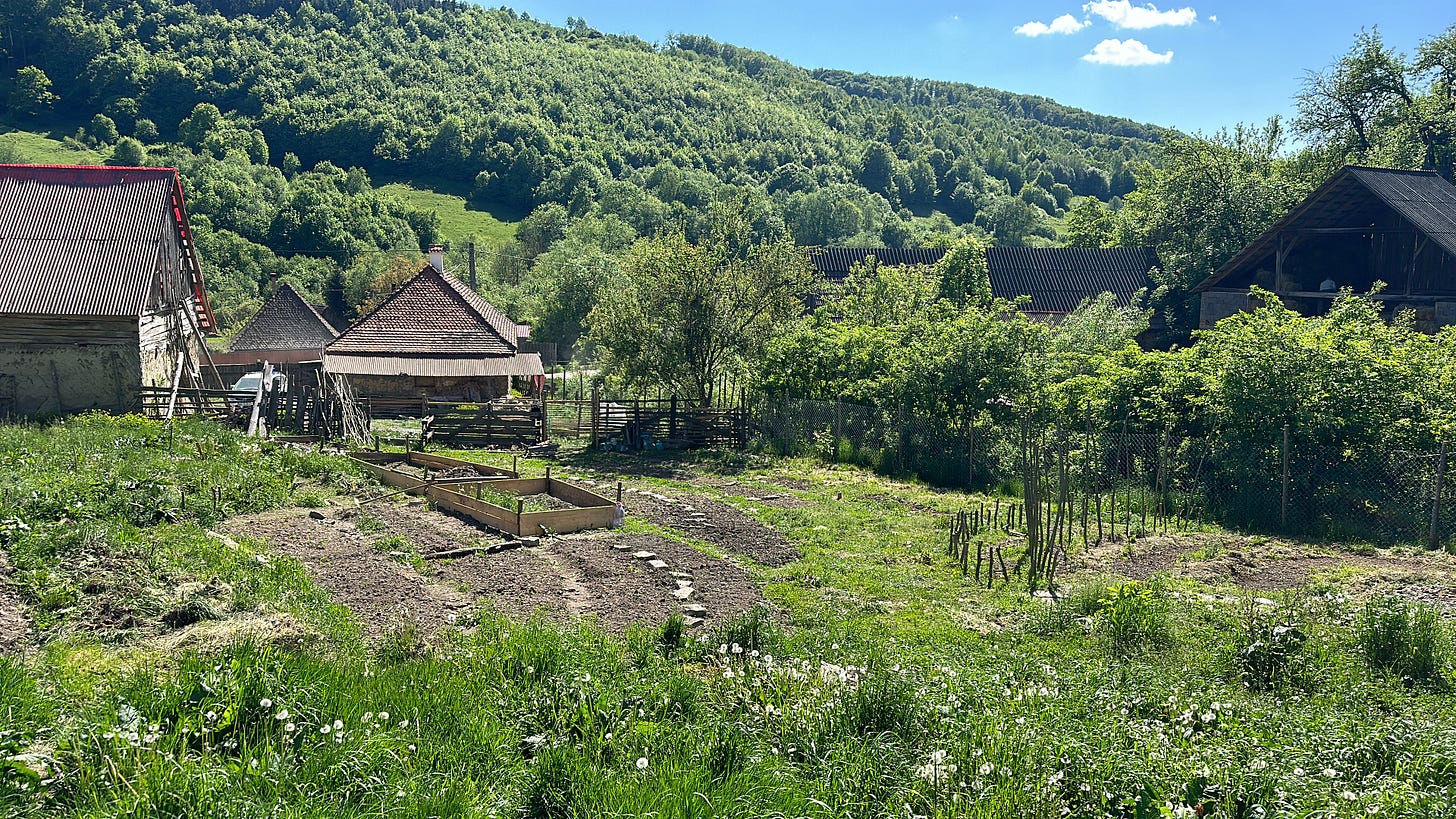“God Almighty first planted a Garden; and, indeed, it is the purest of human pleasures; it is the greatest refreshment to the spirits of man; without which buildings and palaces are but gross handy-works: and a man shall ever see, that, when ages grow to civility and elegancy, men come to build stately, sooner than to garden finely; as if gardening were the greater perfection.” – Francis Bacon
When I was little, I could deduct my mother’s mood by watching her work in the garden. Would she point out the pear blossom turning in to fruit or let me pick sweat peas to put in a vase. Or would she work the ground a little, silently, weeding with bare hands, before sitting down with a glass of white wine. Her cigarette smoke would waft into the kitchen. The first thing she did every early spring, as soon as the first forsythia blooms were out, was leave the kitchen door open, no matter how much my brother and I protested the chill it brought.
Mild evenings and sunny Saturday afternoons were spent cycling around, buckets dangling from the steering wheels of our bikes, on the hunt for frog eggs and marsh marigold. My mother had dug out space for a pond and was now bringing life to it. Every morning before going to school I would track the frog babies’ progress. Breakfasts and birthdays were celebratory moments, out there on the patio my mother paved herself.
I didn’t think I had green fingers or the mindset for gardening. In my last year in high school a group of friends and I were invited to work at a summer fair at a fancy country estate. Among the exhibitors was a renowned rose grower from Bussum. As it was his first time there he had booked a stand for just one day, to test the waters. The response was great and he wished to stay. Tied to other commitments he couldn’t, so he asked if we could work the stand the following day. This was before mobile phones and Google, and at 17 we didn’t know the first thing about growing roses. We were given a 15-minute crash course and spent the rest of the evening reading the information leaflets, memorizing it. Then we smelled the roses, came up with stories around the colour and the scents. We chose our favourite and tried to explain to each other why we picked that specific one, practising for how we would talk with the customers the next day.
By the time the man came back we were almost sold out. Only four roses were left. On top of our wages, he gave us a hefty tip and we got to keep the roses. I cared more for the roses than the money, because I couldn’t wait for my mother to pick me up so I could surprise her. I could picture her wandering around the garden with the potted plant in her hand looking for the perfect spot.
In my parents garden the rose is still thriving after 30 years and 4 or 5 moves
Everywhere my mother lived after I left home, she would create her own world in a garden. And she brought the rose with her. It is still in my parents garden now.
I was a forager, a wildflower girl and never really had a garden in my adult life. The first time I worked in a garden was when I moved to Romania. My colleague from the foundation I volunteered for had kindly agreed to share the house she lived in, a stone’s throw from the school where we worked. She had become a keen gardener and had had a lot of fun with her former flat mate who had moved out to a house she had recently bought. And where she also started gardening.
That summer was hilarious. From starting with the seeds, to figuring out plant pairing while drinking tea and eating chocolate to the evenings spent making tomato sauce and pickling courgette. We had so many courgettes that even after handing most of them out, there were still so many left that we tried and invented all imaginable dishes, and even briefly considered writing the BIG COURGETTE COOKBOOK. The former flatmate regularly visited with baskets full of veggies. Her giant kale crop was impressive, and she would hand them over like they were flower bouquets.
I am still looking where to make space for my kale seeds in my current garden. The courgette seeds have sprouted, but I have only sown a handful. There are onions, leeks, beans, lots of herbs and flowers, tomatoes and hot peppers. And probably stuff I forgot I have sown. I was in a bit of a fuzzy state when I started the garden this season.
Although I am relieved I chose to stay (for now) and have thrown myself into gardening season with everything I have got, everything at the moment is not as much as I had hoped. It is not enough in terms of what is needed. In part it is my impatience: I have a plot of land covered in very thick healthy grass and lots of giant weeds. Last year Grandpa neighbour came to cut it by hand and then wrap what he had cut in a sheet and carry it to the cows. This year I am cultivating a garden and the cows go out to pasture every morning at six. The mice ate my motor mower and I am cutting it all by hand. Pfffff….
Underneath the lush green layer is rocky earth. I have done my best clearing patches where my neighbour ploughed last October when mum was here (he gave up halfway through because of the rocks). I have made three raised beds which take forever to fill up. Even if I am grateful for the annual wood logging project behind my house, as the saw dust is making the movt beautiful mulch, it takes a lot to carry it here with the wheel barrow.
I am planning ahead now. Probably half of the seeds I haven’t made it into the garden and are still bagged and boxed up. Hopefully they will keep for next season. I am going for the no dig approach from here on out. As soon as the logging crew show up I am covering my low beds with cardboard and I will gather natural rocks for a border. Then every day I will go get mulch and cutting waste from the loggers. I have enough lovely old cow poop for the next few years. I can make nettle juice and keep composting. All the needed nurturing for the soil is at hand.
It is just a lot of work. Glorious and satifsfying work. But work nonetheless.
My garden is my refuge. I have made choices with unforeseen consequences that have increased the sense of isolation. I am being challenged in the way I feel connected. Feeling the earth, watching the seeds sprout, thinking about where goes what and what will I do next year, how do I work towards more permanent planting, it gives me roots. I will not live her forever, but for now, I allow myself to feel rooted. It is the only way I can bloom.
PS Francis and I are not operating in the same climate zone, but I have made note of his 4 season planting plan and will add to my garden whatever fits and resists.







